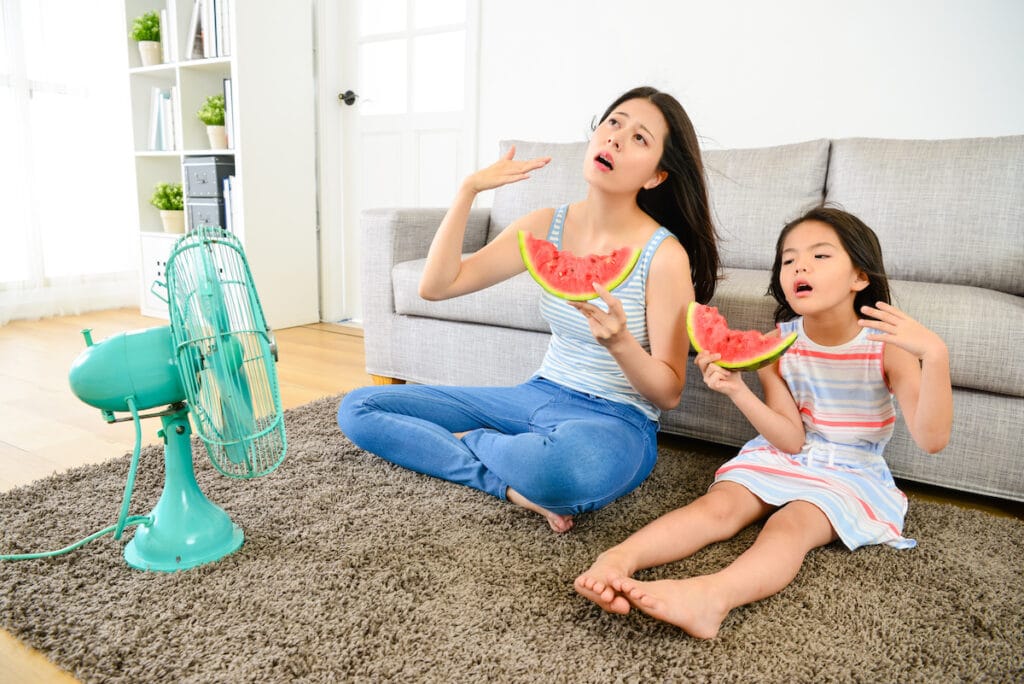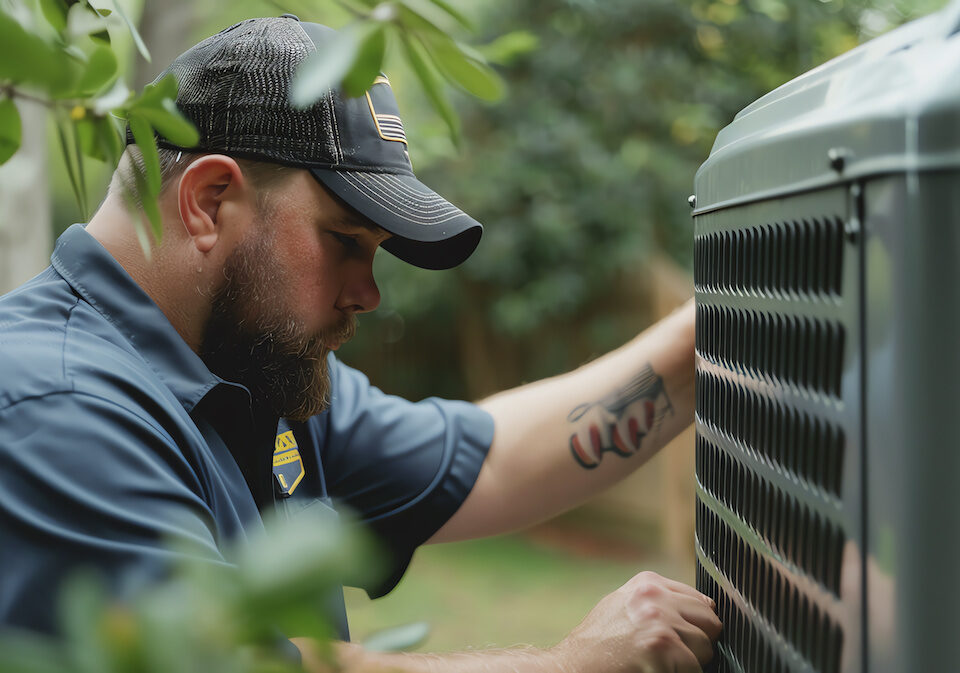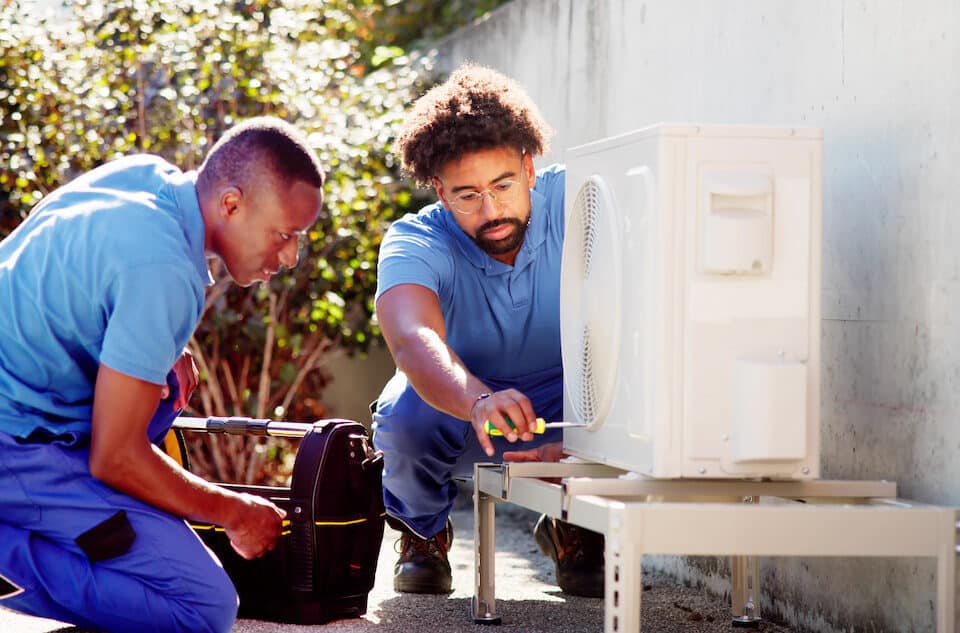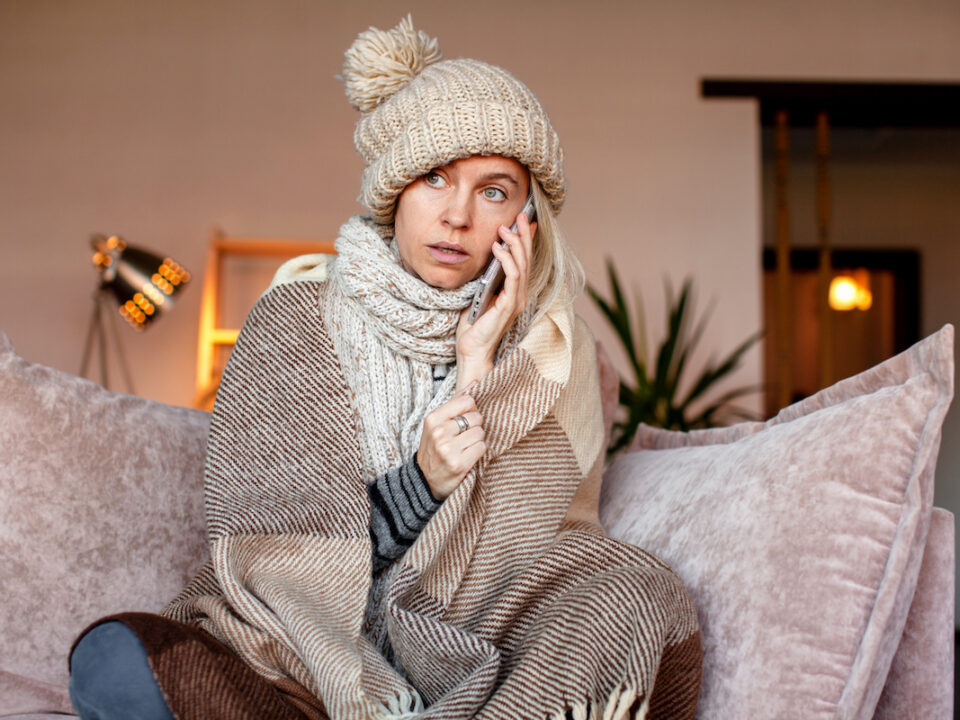What is the Best AC Temperature for the Summer?

Summer has just begun, and you may already be dealing with the frustration of high energy bills and discomfort indoors. Because it’s the hottest time of year, your HVAC unit is likely overworking itself to keep your home cool and you and your family healthy and happy. One common question on the minds of Georgia homeowners is, “What is the best AC temperature for the unbearable heat of summer?”
TRUST Heating & Air guides you through the ins and outs of what temperature to set your thermostat to this summer. Plus, we provide expert tips and tricks on how to continue to beat the heat as we reach the peak of this exhausting season.
Understanding Your HVAC During the Hottest Season
In the middle of a toasty summer, you may be tempted to set the AC temperature as low as possible to get some relief. However, this will only lead to further issues and can potentially overwork your HVAC system, resulting in faulty functioning.
You’ll be happy to know that most HVAC units are equipped to handle outside temperatures up to 100 degrees. But this means when temperatures come close to 95 degrees, your AC works harder than at other times of the year. An overworked AC is susceptible to premature wear and tear and other problems.
Additionally, if your HVAC system is old and dated, it may struggle even more to keep up with the summer heat and humidity.
Any AC unit will be working extra hard in the summer. Here are just a few things the typical HVAC unit struggles with in high temperatures:
- Air filters may become clogged quicker than before
- The HVAC fans on the outdoor unit will collect more debris at a faster rate
- Your unit will be running more often to maintain optimal temperatures

young mother with cute little daughter feeling hot in summer sitting on living room floor blowing electric fan refreshing and eating cold watermelon.
The Recommended AC Temperature for Summer
Experts recommend setting your AC temperature to 78 degrees in summer. Any lower, and you risk increasing your electricity bill. For instance, setting your thermostat to 77 degrees may add 4-6% to your monthly bill. And setting it to a much more comfortable 73 degrees can increase your payment up to 30%.
78 degrees does not sound ideal for most households. Luckily, there are many other ways to ensure your home stays cool and comfortable during the blistering summer months.
How to Save Money and Stay Comfortable in the Summer
The summer heat can be exhausting. It can make you and your family uncomfortable, decrease your productivity, agitate allergies, and even interrupt proper sleep. It can also result in the highest energy bills of the year. That’s why it is critical to discover everything there is to know about handling high temperatures in the smartest ways possible.
1 | Adjusting Your AC Temperature
The higher your indoor temperatures during the summer, the lower your AC bills will be. That makes sense, right? However, exceeding 78 degrees in your home may sound like torture. The key is to be strategic with your adjustments.
Here are some helpful tips on how to adjust your AC temperature during the correct times without compromising your family’s health or comfort:
- In the early morning, when outdoor temperatures are a bit cooler, set your thermostat a little higher than you usually would. Then, you can decrease it in the hotter times of the day.
- Most people will leave their homes for a good portion of the day, whether for work, school, or exciting summer activities. When everyone is out of the house, it’s the perfect chance to set the temperature much higher. So, before heading out, set the temperature to around 85 degrees and watch your energy bill decrease significantly.
- Again in the late evening, when outdoor heat has been reduced, you may be able to set your thermostat a couple of degrees lower than the recommended 78 degrees.
2 | Using Fans
Ceiling fans, standing fans, desk fans, and box fans will become your best friend this summer. These excellent devices allow you to set your HVAC temperature a little higher as you enjoy the cool breeze. However, there are some rules to using fans correctly while avoiding a spike in electricity bills.
The “Wind Chill” Effect:
The fans throughout your home do not literally reduce indoor temperatures. What’s happening is the breeze brushes against your skin and creates a cooling sensation. This occurrence is called the “wind chill” effect. That being said, people must be present to benefit from the relief fans provide. So, if you’re running ceiling fans or standing fans in unoccupied rooms, you’re unnecessarily increasing electricity bills and likely generating more heat from the functioning of the fan.
Therefore, the golden rule to using fans to combat summer heat is to only use them in rooms where people are present to enjoy the chilling sensation.
Ensure Your Fans are Rotating in the Right Direction:
Not everyone knows how ceiling fans can rotate in two directions- clockwise and counterclockwise. This helpful switch is not there for personal preference. In fact, your ceiling fans are equipped with this switch to aid in how the air circulates in a room according to the season.
For instance, in the winter, you’ll want your fans to run clockwise. This causes the warm air to flow to the floor as the cooler air is carried toward the ceiling. For summer, you should ensure your fans are switched to rotate counterclockwise. This way, the relieving cold air will flow to the ground as the warm air rises.
3 | Reducing Sun Exposure
Summertime outdoors can be a beautiful sight. However, as much as you may want to draw the shades and take in the stunning view, it’s best to keep the blinds and curtains closed. This especially applies to the hottest times of the day, from noon to around 5 pm.
If you can’t resist letting in the refreshing sunlight, restrict yourself to only opening the blinds or curtains in the coolest parts of the day, in the early morning and later evening.
Furthermore, if your curtains are sheer or another thin fabric, you should consider purchasing some heftier ones. What works best for blocking out the sun are black-out curtains. Originally, these curtains were quite unsightly and often came in solid black. However, you can find modern black-out curtains in beautiful shades of color and interesting textures and patterns. They are handy for south-facing windows, which receive intense sunlight on summer days.
4 | Beat the Heat with a Dehumidifier
Sunlight and summer heat isn’t the only concern for the season. Georgia summers are humid, and humidity increases the “feels-like” temperature outdoors. You may have noticed the humidity reading on your thermostat increasing as we make our way into the hottest time of the year. This is typical of most HVAC units. Your AC is working extra hard to reduce the humidity in your home, but it can only do so much with how concentrated it is outside.
Ideally, your indoor humidity level should be between 30% and 50% throughout the year. In the summer, it will certainly increase. But, when it exceeds 50%, your indoor air quality and overall comfort will be compromised.
Excessive humidity inside the home can cause a slew of issues:
- Increased allergens
- Encouraged growth of dangerous mold and mildew
- Heightened perceived temperatures
- General discomfort
The solution to the problem is a dehumidifier. You can purchase one of these incredible devices for an affordable price. However, they can also be pricey when equipped with remote smartphone app control and other innovative features. Dehumidifiers can be a standing device that you place in a single room, or they can even attach to your AC unit to reduce the moisture levels throughout the house.

Is Your AC Not Functioning Properly?
The last thing you want is your HVAC system to malfunction during the summer. So, catch the issues before they ruin your summer vacation by scheduling regular maintenance with TRUST Heating & Air experts.
Preferably, you want to have your AC unit inspected at the beginning of each season to ensure it is in the best condition to work well for you and your family. However, if you haven’t yet had your HVAC serviced for the summer, call us to make sure all the critical components are working correctly.
Furthermore, if you are currently experiencing issues with your at-home unit, reach out to TRUST before sitting in the sweltering heat. We will arrive as soon as possible and fix the problem, so you can get back to enjoying all the season offers.



